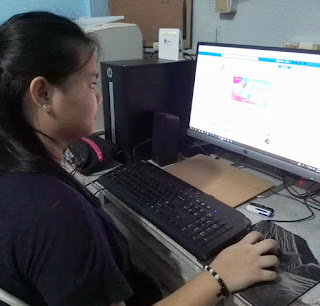We live out a good portion of our lives on the internet, the
World Wide Web being a major source of information and entertainment, and a
venue for social interaction. The internet has changed how we live our lives in
countless positive ways, but we cannot deny that it has its downsides as well.
In this millennium, we tend to forget that every time we
make a transaction online or post on social media, we give out vital
information, making us vulnerable to crimes such as identity theft, credit card
scams, cyberbullying, and even rape, burglary or kidnapping.
With these crimes on the rise, we have to take extra steps
to ensure that our personal information cannot be accessed by unscrupulous
individuals.
Passwords
Identity theft is currently the top cybercrime, which can
have long-lasting repercussions and destroy your privacy and online reputation.
So how do you prevent this? First step is to create strong passwords or
personal identification numbers for your bank, credit cards, laptop or
computers, and other mobile devices. If possible, do not save them on your
gadgets. Memorize them instead.
Another important thing is the proper disposal of your
computer, cellphone or tablet. Make sure that all personal information stored in
them are deleted before selling or throwing them away.
Social Media
With the onset of mobile gadgets, more people, especially
the youth, now use social media apps such as Facebook, Instagram, Twitter and
Snapchat. Although these apps make it easier to communicate with family and
friends, they also make the young vulnerable to cyberbullying, rape or
kidnapping.
At home, we strictly regulate the use of social media on my
niece and nephew since there are many strangers who ask to be their “friend” on
Facebook. We always remind them never to chat with strangers. If you have children
or teens at home, closely monitor their browsing activities, most especially
their social media accounts.
I know, posting ATM (at the moment) photos and using the
“check-in” features of Facebook is trending nowadays, but giving away your
location has its risks. Same thing when you are posting your vacation photos
online.
Also, refrain from putting all your personal information on social
media apps, such as your address, birthday and phone numbers. These can give
hackers a good chance of stealing vital information.
Credit Cards
Nowadays, we make transactions on the net almost daily, may it be purchasing stuff, booking a cab, or reserving a table in a restaurant. We enjoy the convenience, right? But, again, there are risks here. Most of these transactions require us to give out our credit card information.
Nowadays, we make transactions on the net almost daily, may it be purchasing stuff, booking a cab, or reserving a table in a restaurant. We enjoy the convenience, right? But, again, there are risks here. Most of these transactions require us to give out our credit card information.
Only make transactions with reputable companies that you
think will keep your information safe. I have purchased a book on Amazon,
eBooks from Play Books, some stuff through Lazada, and booked hotels at
Booking.com, which are all very reliable sites. So far, I am happy with them.
Stay safe online
Recently, Globe Telecom, a big player in the communications
and IT industry, launched its #makeITsafePH campaign. A purveyor of digital
lifestyle, Globe came up with this campaign as it recognizes its responsibility
in educating the public with the importance of cyber security.
With millions of subscribers nationwide, Globe has taken it
upon itself to keep not only its subscribers, but the entire populace, safe
from numerous threats that lurk online. The campaign covers corporations, SMEs,
government agencies, educational institutions and the general public.
Globe Telecom takes cybercrimes seriously. So should you.
Protect yourself, safeguard your personal information online.


Comments
Post a Comment